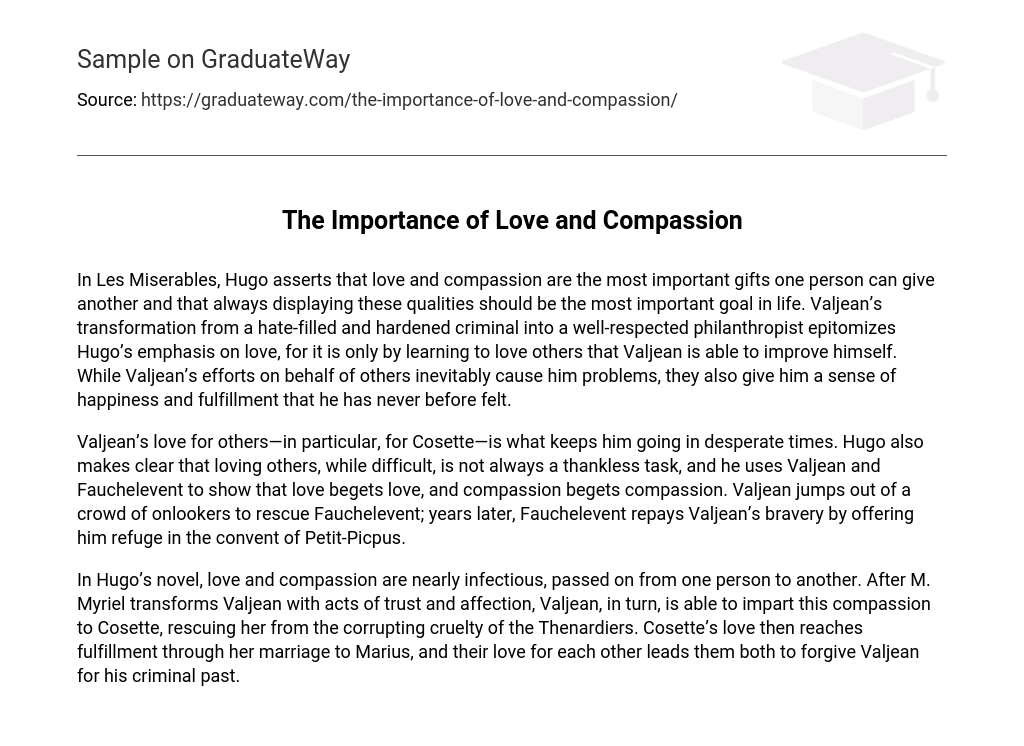Les Miserables by Hugo emphasizes the significance of love and compassion as the ultimate gifts one can offer, highlighting that continuously demonstrating these qualities should be the ultimate life goal. The protagonist, Valjean, undergoes a profound transformation from a hateful and callous criminal into a respected philanthropist, embodying Hugo’s emphasis on love. Valjean’s journey towards self-improvement is only made possible by his ability to love others. Although his efforts to help others bring about challenges, they also bring him a profound sense of joy and contentment that he has never experienced before.
Valjean’s love for others, particularly for Cosette, is what motivates him during difficult times. Hugo emphasizes that loving others is challenging but not always unappreciated, and he illustrates this through Valjean and Fauchelevent, who demonstrate that love and compassion generate more of the same. Valjean saves Fauchelevent amidst a group of observers, and many years later, Fauchelevent reciprocates Valjean’s courage by providing him shelter at the convent of Petit-Picpus.
In Hugo’s novel, love and compassion are like a contagion, spreading from one person to another. When M. Myriel shows trust and affection towards Valjean, it transforms him, enabling Valjean to then pass on this compassion to Cosette and save her from the cruel influence of the Thenardiers. Eventually, Cosette’s love blossoms fully when she marries Marius, and their love for each other inspires forgiveness towards Valjean for his criminal history.





